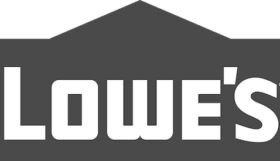Anonymously Ask A Black Person
Anonymously Ask A Black person is a website that allows anyone to ask a black person a question. Anyone can ask an intelligent question and get an intelligent answer from a black person. The site, the brainchild of Wayne Sutton, is intended to open up the conversation on race. People asking questions need not fear being ridiculed or denounced as a racist for asking curious questions about black people, black culture and attitudes. Sutton points out that many white people have no black friends or have little interaction with black people and therefore have misguided perceptions about a black person’s experiences and views on life.
In America we struggle with race. America is supposed to be the land of freedom and opportunity for all. That is debatable. The color of your skin matters in America. It impacts everything you do, everywhere you go and everybody you interact with. Something has to change; enter Wayne Sutton.
Sutton describes himself as a serial entrepreneur. He is a general partner at BuildUP VC. Sutton is a tireless warrior for diversity in the tech sector and that is the essence of what he does at BuildUP VC. Sutton believes his life’s mission is to bring more color, more minorities, into the Silicon Valley. He believes that race, as the primary issue, must be dealt with. An unconventional thinker, Sutton’s mindset is to find new ways to deal with the race issue. His dedication to solving the race problem in the heart of America’s technology sector has inspired him to create “Anonymously Ask a Black Person”. AABP is a website that is meant to amplify the whispered race conversation. Sutton’s objective is to get people talking.
Tell us about BuildUP VC?
“Build-Up is a non-profit that focuses on education, mentorship and access for under-represented minorities in tech.”
I see a lot of corporations putting a lot of effort into diversity and bringing in minorities. But when I look at reports from companies like Facebook I don’t see much happening. Are we facing a situation where there are not enough professionally trained minorities as say coders, etc.? And are we addressing that in our schools and other programs?
“I think we are addressing diversity the wrong way. In terms of saying there is a tech diversity problem in Silicon Valley, that message is the wrong approach because it’s not just a tech problem, not just a Silicon Valley problem. If you go deeper than that it’s an American problem. It’s an American workforce problem. It’s an American cultural problem where groups are not all included or looked at the same way when it comes to getting a job or equal salary, race or gender, you name it. It’s the history of America that these biases, these barriers, are in place. And unfortunately here we are in 2015 still dealing with some of the issues that Martin Luther King had to deal with back in the 1960’s. So that’s one problem. The second thing is all these tech companies talk about the workforce, talk about the numbers, as if we needed this data to start a conversation about what we already know. But that is the way the landscape works so we deal with the hand they give us.”
Sutton, getting to the very root of the Silicon Valley diversity problem, questioned the recruitment process of large tech companies.
“Now what’s the problem here? Are we qualified for these jobs? The answer is yes. Now, is there a pipeline problem if you only recruit from Ivy League schools which don’t have a diverse population? You could arguably say where we go look for jobs we are not seen as candidates. Then of course there is a pipeline problem. Does that mean that there are not qualified African-Americans who can do tech jobs or non-tech jobs? No, that is not true. We are qualified to do the tech jobs. We are qualified to do the non-tech jobs. Now, why are we not getting those tech jobs? That’s a whole other conversation about biases, culture, pattern matching, etc. And let’s look at those schools. Why don’t they have a diverse candidate population? And it’s the same for non-tech jobs. Now, as black people we have a choice, we’re not going to go where we don’t feel welcome.”
Sutton is fair minded man. He is not about to lay the issue of diversity and race at the feet of white America without pointing out the failures of black America as well.
“As black people we also have to look at ourselves in the mirror and ask what happened in the black community where half of black boys don’t even graduate from high school? Now, that we can’t put on anyone else. We can’t say, ‘The Man.’ There is a lot of things we can’t say about the system where we as a culture, as a people, are not graduating from high school, black men, black women not graduating from high school. So what can we do as a culture?”
Sutton’s efforts is to bring the whispered race conversation out in the open. In a single weekend of work Wayne, who admits he loves to build things, built Anonymously Ask a Black Person. Sutton believes that the first step to solving the problem is communication.
Are you pioneering race relations online? Is this an effort to disrupt racism by opening a new line of communications between black people and the rest of the world online?
“I don’t think I’m disrupting race relations. Part of my goal and my hope is that AABP can help massage the tension of having a conversation around race publicly and educate people who are misunderstood or have certain opinions or biases toward African-Americans. And to debunk how the media portrays African-Americans as stereotypes. We have to look at the data and statistics and the perception. There’s the assumption and there are things that we know. There are people who have zero black friends, none. There are cities, some states in America, where the black population is about one percent. We don’t think about that. We just think that everybody should know black people, no. There are some jobs, here in Silicon Valley, where black people have told me that they can go weeks without seeing another black person on the job. When you have people who have zero interaction with black people and all they know is what they see on television, media, entertainment, sports, they come to their own perceptions. Let a strong situation happen that impacts American culture that has been happening forever but now is more mainstream because of social media like Mike Brown, Ferguson or Eric Garner. All these situations throw us into the spotlight. We are not talking about right and wrong in the legal sense but what we do know is wrong is killing somebody, un-justified killing. That is horrendous and the media continues portray us as the agitators and not the victims of abuse.”
Sutton offers his insight on the reactions of black people online when events happen that involve race. He believes that a group think mentality is occurring and black people may not respond kindly to other black people who express their own opinion about racial issues.
“So you take those situations in African-American culture right now, situations where we as a society have changed in the dawn of social media. I was one of the first thousand users of Twitter in 2006. We are not the same people we were in 2006. We are bolder, more outspoken, there’s more group think, there’s more mob like behavior online.”
“So now if I’m a black person and I say something that could be controversial or not controversial, but as an opinion. I could say as black people we should do more of X. I could be right and a thousand people could agree with me. But the mob mentality could come at me and be like; you’re a Tom, a token. Now, I don’t want to say anything against black people because I might get attacked. A difference of opinion can create a bully and mob mentality. Everybody should have an opinion. But a lot of negative things have happened because we can do that in terms of groups, bully people. We can actually create fame for people who really shouldn’t have it like Rachel (Dolzeal). That was one of the reasons I created AABP. Because now it shows, here is how people view us. This is how they think. And in the response, a team of team of 15 of us, we try to educate people and give honest answers. But if you come at us with some BS you going to get BS back.”
Wayne agrees that opinions sometimes congeal on social media. That people are not open to thinking independently about some of these situations black people find themselves in.
“Recently Hulk Hogan admitted to some racist comments he made. He apologizes. Everybody goes in and attacks him. WWE removes him from the website. Dennis Rodman comes out and defends him. Now, Dennis Rodman is a character himself. He has known Hogan for years and he, as a black person, defends him. Now I don’t agree with anyone, black or white, calling someone the ‘N’ word. But Dennis takes up for him and what happens. Everybody goes after Dennis. Dennis has the right to do what he wants to do. But the same things happens if I am an Asian person or white person asking a question about can I touch a black woman’s hair? Or why do black woman get so mad if I touch their hair? Or why do black people feel a certain way about X? Social media will go after a person, its group think. Can we have an intellectual debate around the person’s question without the name calling, without the abuse? The person has serious question. They may ask, ‘I don’t get why a black person gets offended when I say or do this? Or how do you want to be addressed, black or African-American?’ That’s a legitimate question. I have white friends who don’t know. They want to know. They don’t want to be offensive. Are they wrong for asking that question? Are they naive for asking that question? And can we have an interesting conversation about why you may or may not feel a certain way about a question?”
How many questions does AABP get?
“Actually the growth comes and goes. It seems to come and go with press. Some people are just curious; they want to know ‘is this real? Is this really a black person answering my questions? Are you really black?’ We’ve answered 1,600 SMS messages. But our goal is 10,000 questions in two or three months and we may hit that goal.”
Do you see peaks and valleys in the questions when there are incidents like the recent Sandra Bland incident in Texas?
“No. It’s different in terms of the connection with AABP. Since we started this thing we have had the Baltimore uprising, the Charleston shooting, then the Confederate flag controversy and now Sandra Bland. We know those things are in the news. They are covered by the media, our people, Black Twitter, etc. My team and I, we are all very sensitive about these issues. But we will not try and leverage those serious situations just to increase engagement on our site. But we do see the narrative change when things happen. But we don’t do anything special to get into those conversations. But we will get questions about how black people feel about the about the confederate flag or the police.”
Sutton knew he was taking a big step with AABP and spoke about the reaction to the project.
“I had to deal with some people in my own network who asked, how do I let people know you are not speaking for all black people? I tell them the name of the site is Anonymously Ask a Black Person, not ask black people. I am not trying to speak for all black people. And as a black person myself I am qualified to answer any question for someone who says; I just want to ask a black person a question.”
How was the site received when you first introduced it?
“It was weird. Because even myself when I first did it and I put it up on a couple of sites and somebody else put it on Reddit and it got 10,000 page views. I did one Facebook message and one Tweet. And Boom! I was remaining anonymous to see what happens. And when I came out and said it was me some of my tech friends asked; ‘what’s the purpose of this? How does this help diversity in tech?’ Because they know I am a big advocate and it’s my life’s mission. It was eye opening for me to see how people portrayed everything I do or this particular web app to be something for the diversity tech movement and it wasn’t. Honestly it wasn’t. But that was interesting. The other part of the conversation brought emails and Tweets from investors and non-blacks, short messages saying, ‘I like it. Keep it up. This is cool! That’s interesting.’ ”
“But I didn’t build it for a diverse tech conversation. I built it because I wanted to do something around race relations. I was frustrated actually because I had just announced some big news, I thought some tech companies would be impressed and get it in the press. I am serial entrepreneur, I like to build things. I also seen a couple of other similar services and one company raised $12 million dollars. I was like, really. I can build that. So let me just do it.”
When you first kicked this off you put it on ProductHunt.com and later they took it off the homepage.. They felt like it got a negative reaction. How did you feel about that?
“One, I wasn’t that surprised. I submitted because Product Hunt has this whole process just to get featured. And I submitted other things in the past and never got featured. I submitted this and nobody knew that I was behind it. The first version I built was a real hack. I was up late Sunday night, answering questions one by one and making sure the code was up and working. When I woke up at 9:30AM and I already had 43 votes on the Product Hunt homepage and was taken off by 10:00AM. I was like…shit!”
“I was getting interesting emails like, ‘Is a black person really behind this?’ One of the reasons it was taken off was because I wasn’t there to defend it. Another reason was that some people felt it was offensive and they just knew it was some white guys or a women or non-black people built this site and they knew it was going to be controversial. And people were offended. But they didn’t know who did it. They saw that Wayne submitted it. But they didn’t know who built it. But put this in perspective; why do people think that a non-black person would build something like that?”
Do you believe that black people don’t get credit for trying to reach out to other races? People may think blacks are always on the defensive or closed off? Do you feel that they may not want to give you credit for reaching out using AABP to deal with race relations, to deal with racial curiosity?
“That’s an interesting question. I don’t know about that. My hypothesis was that people couldn’t believe that a black person could build a product that they may actually use. Or the product is actually cool or the product actually works. Or a product that actually makes sense around race or around black people. Why would people even think that a non-black person could build something like that? I got email from black people, who I know, that ask; ‘Is a black person behind this?’ They want to check. So what is the perception, that a black person can’t build a tech product? Or, is the perception also that if somebody builds a product around race or tech then it’s not a black person? It’s some programmer guy or somebody. Why would a people think that a black person could not build this?”
How did black people react to it?
“Some said it was cool. Some people were questioning me. Asking, ‘why is Wayne doing this?’ This is not good for us. This is not good for our eco-systems. How does this help diversity in tech?’ I got a lot of that which I was not anticipating. People were telling me about other conversations that were happening in Facebook groups and on Slack. Some people were saying this is not a good idea. Somebody needs to tell Wayne to stop. I was like, …alright then?”
“I have been in this web tech space for years. I’ve been an IT guy. I’ve seen a lot and been screen shouted a lot. People called me names. It always hurts when it’s your own people. It always hurts the most when it’s your own people. And I don’t know if I would have done anything different. I say, look this is not necessarily bothering you. It doesn’t hurt you either. But you’re not happy about it for some reason.”
More about Wayne Sutton and BuildUp.








